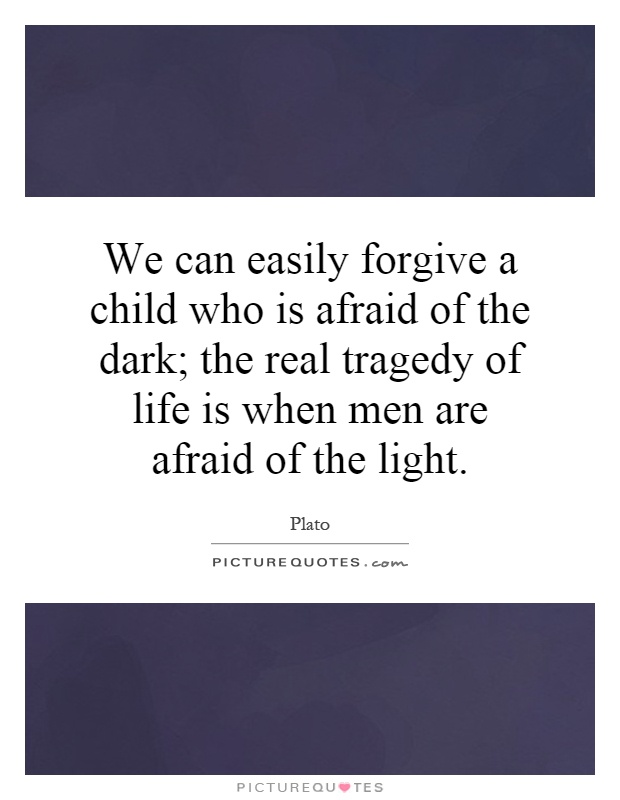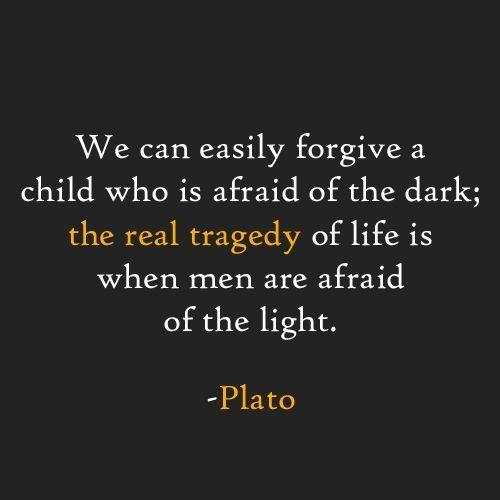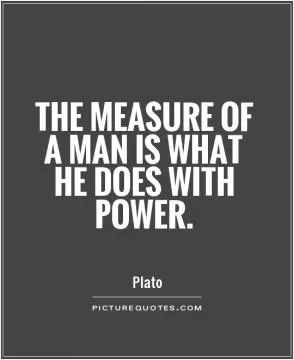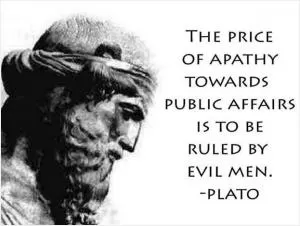We can easily forgive a child who is afraid of the dark; the real tragedy of life is when men are afraid of the light


We can easily forgive a child who is afraid of the dark; the real tragedy of life is when men are afraid of the light
In the context of Plato's philosophy, the quote "We can easily forgive a child who is afraid of the dark; the real tragedy of life is when men are afraid of the light" holds significant meaning. Plato, a renowned Greek philosopher, believed in the pursuit of knowledge and truth as the ultimate goal of human existence. He often used the metaphor of light and darkness to represent the contrast between ignorance and enlightenment.For Plato, the darkness symbolizes ignorance, fear, and the unknown. Just as a child may be afraid of the dark because they cannot see what lies beyond, individuals who are afraid of the light are those who shy away from seeking knowledge and understanding. They prefer to remain in their comfort zone of ignorance rather than confront the challenges and uncertainties that come with seeking the truth.
In Plato's famous Allegory of the Cave, he describes a group of prisoners who have been chained in a dark cave their entire lives, only able to see shadows cast on the wall in front of them. These shadows are their only reality, and they believe that this is all there is to existence. However, when one of the prisoners is freed and brought into the light of the outside world, he is initially blinded by the brightness but eventually comes to see the true reality of the world outside the cave.
This allegory serves as a powerful metaphor for the journey of enlightenment and self-discovery. Just as the prisoner in the cave must overcome his fear of the light to gain true knowledge, individuals in the real world must also be willing to confront their fears and step out of their comfort zones in order to seek the truth.












 Friendship Quotes
Friendship Quotes Love Quotes
Love Quotes Life Quotes
Life Quotes Funny Quotes
Funny Quotes Motivational Quotes
Motivational Quotes Inspirational Quotes
Inspirational Quotes